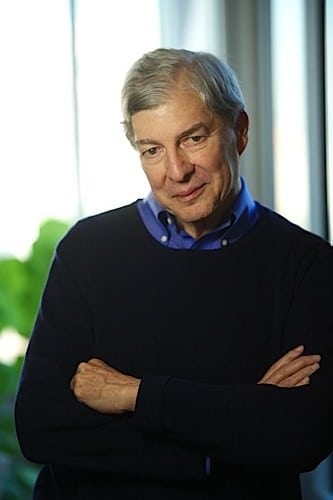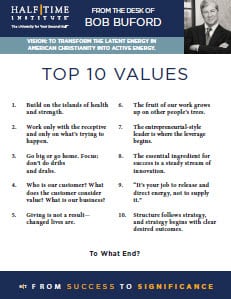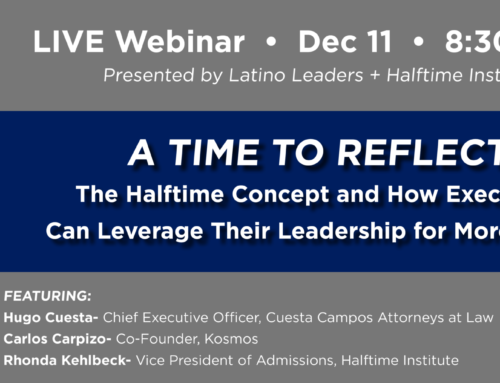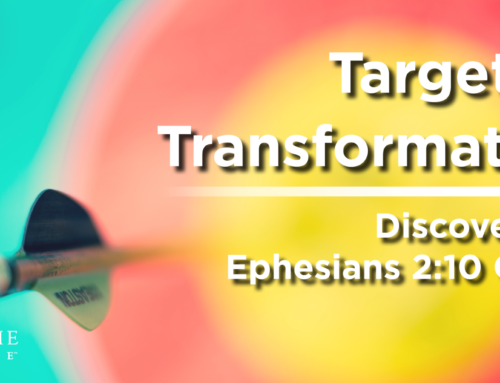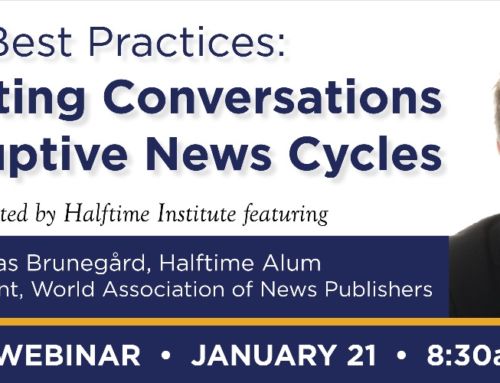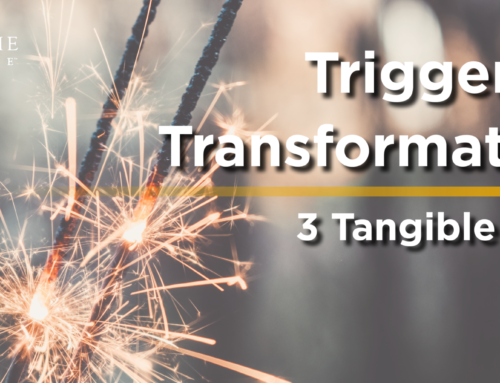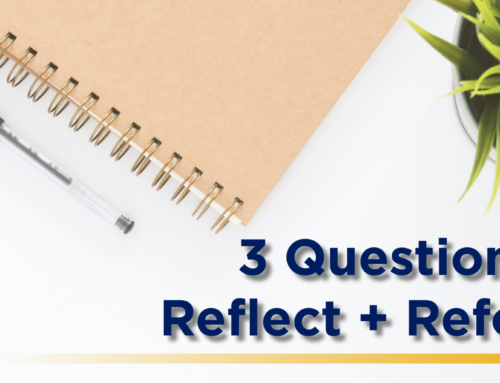To my thinking, The New Philanthropy springs directly from a set of 10 values that came to me, informally, through my mentor Peter Drucker. I mean to say this wisdom came not in business conferences or management lectures but over dinners and in elevators and, as they translated into Texan (and into an even 10 points) they shot deep roots into my life and work.
I’d like to make sure you have them, too, and that you understand how they operate. Ultimately, my hope is that you would articulate the values that guide your life.
Welcome to part one of an exceptional two-part conversation (exceptional for Dale’s experiences and for his frankness): a picture of The New Philanthropy and what makes it work.
Dale Dawson is a Halftimer poster child, a native to marketplace success who found himself feeling most at home in a starter nation two continents away. Now a dozen years since trading his corner office for Central Africa, Dale embodies what I call “The New Philanthropy,” a fresh brand of outreach that sails past damage control to “build on islands of health and strength.” Today, Dale is Chairman & CEO of Bridge2Rwanda.
Dale is interview number one in a new series about the ten “informal” values that have shaped my business work, my social-sector involvement and, more than ever, my philanthropy. This first interview is a twofer-this installment and the next-and it’s more than worth your time, just as the interviews to come make a good case for staying tuned.
The values are that good, and so are the stories in which they come alive.
THE BUSINESS TOOLS OF NATION BUILDING
BOB: I remember you at the Halftime Institute, Dale, where there’s a lot of drawing on white boards. What you drew then has become legend.
DALE: I know that drawing. You insisted every person needed a mission statement, and you told us to express it in a drawing. No words. I’d always thought mission statements were a little hokey but I ended up drawing an outline of Africa and, to its left, an outline of the U.S. And between I drew a line, an arc. I said what gives me joy, what I felt called to, was to build a bridge between the U.S. and Rwanda, and to transform lives at both ends.
My first trip to Rwanda transformed me, and as others joined me, I’d see their ah-ha moments. Here was Africa: raw in general, and the genocide-the tragedy and horrors-and yet so much hope and drive. I used to say in Africa I could see God’s hand much clearer.
So the white board at Halftime turned out to be one of the most lasting revelations in my life.
BOB: Meanwhile I was passing along to you a certain set of what I call my “informal” principles from Peter Drucker. Do you recall any that furnished some pathway?
DALE: Almost every one of them has informed my second half. The standout I identify with you, Bob, is to build on islands of health and strength. In work with poverty and developing countries, common thinking is that these people are below average, pitiful. The motivation is compassion and desire to help bring widows and orphans and poor people to food and healthcare. Yet in truth, what energized me was how to identify the outstanding entrepreneurs or students. How do I take someone highly gifted, talented, driven . . . and open doors to not only lift themselves but become leaders and entrepreneurs for the whole society?
BOB: Can you give an example?
DALE: People look at Africa’s 54 countries and quickly assess the big problem as the leadership: corrupt, self-centered, violent, ineffective. But President Kagame and Rwandan leaders are an anomaly in the world, certainly in Africa. They have a vision to build, a selflessness that serves the entire population, even the poorest citizens, and determination and drive for results. And to be an African leader who came out of being a rebel guerrilla, you wouldn’t expect it. Yet they stopped the genocide and took over the country in ’94, and 20 years later it’s the model of a country coming out of civil wars.
This is what nation-building looks like.God orchestrated my life to connect with these people, but I have nothing to do with their vision, drive, ethics, selflessness. That’s who they are.
I’ve been in education initiatives where people try to build schools in impoverished areas. Over the last five or six years, I’ve gravitated to set up a scholar’s program where we interview 1,500 of the smartest students coming out of high school, and cherrypick 30 to 40 to invest in deeply in an 18-month gap program to study abroad. We stay with them another five years to find a career and get a job back in Africa. In the long run that has the greatest transformation.
BOB: Has some of what you’ve done rubbed off on other places in Africa?
DALE: Certainly Rwanda affects other African countries, their aggressive anti-corruption campaigns, grassroots healthcare and education. Developing leaders is the only way to sustain transformation long-term. We’ve watched lots of non-profits and well-meaning people create programs to help the poor and help Africa, and we’ve stayed results driven. While we encourage Americans to get involved in Africa, we go for significant results with long-term sustainable transformative impact in education, business development, healthcare . . . If you’re not creating institutions and indigenous professional talent, your work stops with you.
BOB: Peter talked about the difference between good intentions and results and performance.
DALE: Right.
BOB: And yet you find a lot of people, almost a majority, doing charitable things that start with the islands of weakness.
DALE: When I started working with Opportunity International in micro-finance, I remember the Christians’ term: “We want to work with the poorest of the poor.”
BOB: As Jesus referred to “the least of these.”
DALE: It’s pure compassion. They’re willing to serve and sacrifice for those who have the least. I had no non-profit experience until my second half. Zero. I was from business, which builds around the best, the most talented-whether investing in a company or in your own organization. When I got into non-profit, I heard the conventional wisdom that the most noble non-profit is with the poorest of the poor.
BOB: It’s one part.
DALE: In micro finance or education, to keep giving to the poorest, and only that, is to extend dependence. To change a society to care for itself, you build into the promise and strength of its talent.
One of my top strengths is maximizer–the person who likes to identify talent and make them the best in the world. Helping below-average people get to normal has value, and God bless those who do that. But to make societies stronger and self-sustaining, unless you build on the strong and talented, you never arrive.
BOB: That’s true in churches as well. Most churches focus on maintenance rather than outreach. In the last years in Leadership Network, it’s people who do as you describe who change lives-which takes us to another one of those informal principles: the fruit of your work grows on other people’s trees.
DALE: To help the most people on the least resources, you accelerate the most talented and they will lift the whole.
One of your greatest gifts to me was the focus on the innovators. My first inclination was guilt. Why is my heart not bleeding? Your approach to build on islands of strength-focus on the most innovative leaders-shows compassion for the long term with dignified sustainable solutions.
BOB: Amen.
DALE: That’s a huge thing.
BOB: It is. I could slip out of Africa for a moment and talk about J.C. Penney, which had a me-centered regime that quickly lost billions of dollars in customer loyalty. So the same principle operates in US malls. It’s universal.
DALE: You distilled Drucker’s truths in a way I could embrace them. The person with similar impact is Collins. Everyone in our program gets a copy of “Good to Great “-Drucker’s next generation. The ideas behind excellence, approaching social enterprises to transform lives vs. a return on capital, striving for excellence, applying the same principles of picking the most talented, getting the right people on the bus, focusing on results and impact, developing leaders . . . all came out of you and Drucker and Collins, and all are working in social settings.
“Not for profit” doesn’t mean less rigor or standard of performance or demands for results.
Stay tuned for Part Two of this interview with Dale Dawson.

